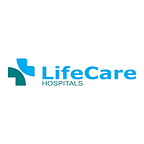What is the Role of a Healthcare Organization in Public Health?
Healthcare organizations play a crucial role in public health, contributing significantly to the health and well-being of communities. In Kenya, where public health challenges are vast and complex, the role of these organizations becomes even more critical. As a top hospital in Kenya, healthcare facilities not only provide individual clinical care but also engage in broader public health activities that promote, protect, and improve the health of populations. Here we explore in detail the multifaceted role of healthcare organizations in public health.
Providing Quality and Accessible Clinical Care
At the core of a healthcare organization’s role in public health is the provision of high-quality, accessible medical care. This includes preventive, curative, rehabilitative, and palliative care services that address a wide range of health needs. For a top hospital in Kenya, ensuring accessibility means not only geographical reach but also affordability and cultural appropriateness of services. This involves extending healthcare services to remote or underserved areas, implementing community-based health programs, and offering services that are financially and culturally accessible to diverse populations.
Disease Surveillance and Management
Healthcare organizations are pivotal in the surveillance and management of diseases, which is a cornerstone of public health. They help in tracking disease outbreaks, monitoring disease patterns, and providing data that are essential for public health decision-making. Through effective surveillance systems, hospitals can detect and respond to health threats promptly, thereby preventing the spread of infectious diseases and minimizing the impact of chronic diseases on the community.
Health Education and Promotion
Education is a powerful tool in public health, and healthcare organizations have a unique platform to educate and empower patients and the community at large. A top hospital in Kenya often conducts health education sessions that cover a range of topics such as nutrition, hygiene, chronic disease management, and maternal and child health. These programs are designed to promote healthy behaviors and lifestyles that can significantly reduce the risk of diseases and improve quality of life.
Community Outreach and Engagement
Engaging with the community is essential for effective public health initiatives. Healthcare organizations frequently conduct outreach programs to reach populations that might not have regular access to healthcare services. These can include mobile health clinics, health camps, and community health worker programs that aim to bring healthcare services directly to the community. By doing so, hospitals can identify health needs and barriers within the community, tailor services to meet these needs, and build trust and relationships that facilitate better health outcomes.
Advocacy for Health Policy
Healthcare organizations, especially those recognized as top hospitals, have a significant influence on health policy. They advocate for policies that improve public health infrastructure, promote equitable access to healthcare services, and address social determinants of health. Advocacy efforts can lead to stronger health systems, improved healthcare funding, and policies that prioritize the health needs of vulnerable populations.
Research and Innovation
Research is another crucial role of healthcare organizations in public health. Hospitals and healthcare facilities often conduct clinical and translational research that contributes to medical knowledge and leads to innovative treatments and interventions that can be applied at a population level. Furthermore, research conducted within healthcare settings can inform evidence-based practices and policy-making, ensuring that healthcare interventions are both effective and efficient.
Emergency Preparedness and Response
Healthcare organizations are essential players in emergency preparedness and response. This involves planning and readiness to respond to health crises, whether they be disease outbreaks, natural disasters, or man-made emergencies. A top hospital in Kenya typically has protocols and systems in place to manage large-scale health emergencies, including surge capacity in critical care, infectious disease control, and coordination with government and other agencies.
Integrating Health Services
Integrating health services is key to addressing the comprehensive health needs of populations. This means coordinating various levels of care and ensuring that different services are interconnected and accessible. For example, integrating HIV services with maternal health, or non-communicable disease management with primary healthcare, can lead to better health outcomes by providing holistic and continuous care.
Addressing Social Determinants of Health
Finally, healthcare organizations increasingly recognize the importance of addressing social determinants of health, such as poverty, education, and housing, which significantly influence health outcomes. By partnering with other sectors and advocating for social policies that improve these determinants, healthcare organizations can have a profound impact on public health beyond the clinical services they provide.
Conclusion
The role of a healthcare organization in public health is comprehensive and dynamic. A top hospital in Kenya not only provides essential medical services but also engages in activities that protect and promote the health of the entire community. Through their efforts in clinical care, education, community engagement, research, and advocacy, healthcare organizations are pivotal in shaping a healthier society. Their commitment to addressing both individual and population health needs makes them foundational to the public health infrastructure in Kenya and beyond.
